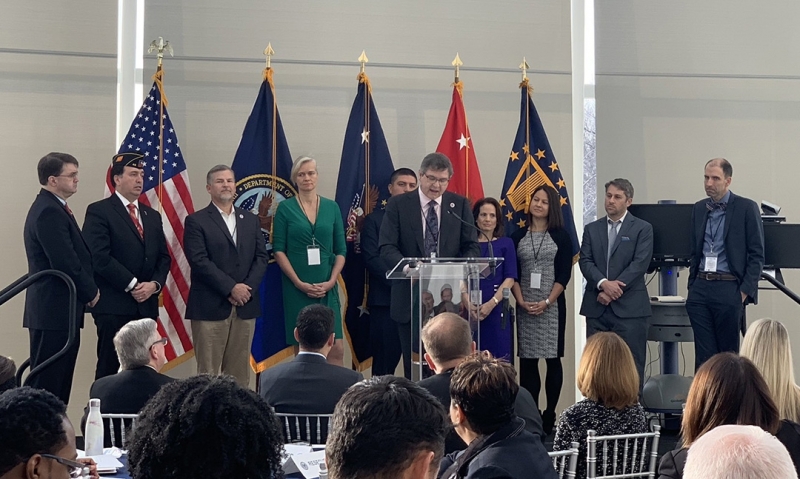
American Legion teaming up with U.S. Department of Veterans Affairs and Philips to place medical equipment in select Legion posts to enable remote medical exams.
The American Legion, Veterans of Foreign Wars, the U.S. Department of Veterans Affairs (VA) and Philips are teaming up to bring VA health care to veterans in a familiar setting: their American Legion and VFW posts.
Through Project Atlas, Philips will install video communication technologies and medical devices in selected American Legion and VFW posts to enable remote examinations through a secure, high-speed internet line. Veterans will be examined and advised in real time through face-to-face video sessions with VA medical professionals, who may be located hundreds or thousands of miles away. The program enables the “Anywhere to Anywhere” VA initiative to benefit veterans who would otherwise need to travel to receive care.
“Throughout our 100-year history, The American Legion has remained committed to meeting the needs of veterans and their families in communities across the country,” American Legion National Commander Brett Reistad said. “We are proud to be a part of Project Atlas, another step towards providing veterans with a solution for convenient access to VA health care.”
Philips will donate medical equipment – video screens, electronic scales, blood pressure cuffs, thermometers, glucose monitors and more – linked to a secure, high-speed internet line. Using telehealth technology, veterans will be examined at their local post-turned-medical office through virtual appointments with medical professionals hundreds, or even thousands, of miles away. The face-to-face interaction will save veteran members travel time and expenses, making health care more accessible and affordable.
“Telehealth is all about meeting patients where they are,” said Dr. Joseph Frassica, Chief Medical Officer and Head of Americas Research at Philips. “Our hope is that this trial period will become a model for a national roll-out of remote telehealth facilities at posts across the U.S.”
Details are being worked out, and the exact locations for the pilot will be announced soon and include sites in Idaho, Wyoming and Montana. Equipment installations begin in the first quarter of 2019, and the program will include ongoing assessments for the veteran experience, streamlined technology and national expansion consideration.
The pilot program comes in the wake of VA’s “Anywhere to Anywhere” initiative, which helped make the VA the largest telehealth program in the country. Last year, 700,000 veterans received telehealth services through VA, including patients in urban Chicago and rural Arizona. The VA has 300 providers connected through 67 hospitals and clinics, covering 50 clinical specialties, from dermatology to intensive care.
Earlier this year, VA announced a new federal rule allowing VA doctors, nurses and other health care providers to administer care using telehealth technologies, regardless of where the provider or veteran is located, thereby erasing state-specific regulatory concerns. This change allows veterans to benefit from the “Anywhere to Anywhere” initiative instead of traveling a considerable distance to receive care. The rule also expands veterans’ access to virtual critical care such as mental health care and suicide prevention.
- Veterans Healthcare

